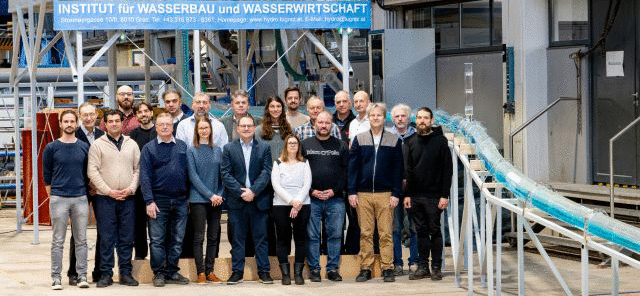Sustainable economic activity through the utilization of renewable energies, as well as the preservative interaction with the environment and infrastructure pose challenges to hydraulic engineering and water resource management. Great progress in the ecological treatment of nature is to be achieved through research and experience which are incorporated into the design of hydraulic constructions and tested in respect to their efficiency for enhancements.
The risk assessments for, and the protection of existing infrastructure are regional tasks and a central subject of hydraulic engineering. For the utilization of renewable energies, the preservation, and the construction of hydropower plants with - by the means of numerical calculations and physical modelling - optimized hydraulic components have great significance. For this, experience with the designs, numerical calculations and simulation methods, as well as modern laboratory equipment provide the basis of this structure. These challenges are met actively with research, physical and numerical modelling, and experience with the performance of hydro-power plants. Founded in 1865, the Institute of Hydraulic Engineering and Water Resources Management in the Graz University of Technology looks back on a long tradition. Work at the Institute rests on four pillars:
- Teaching
- Research
- Studies / statements
- Hydraulic scale-model testing
